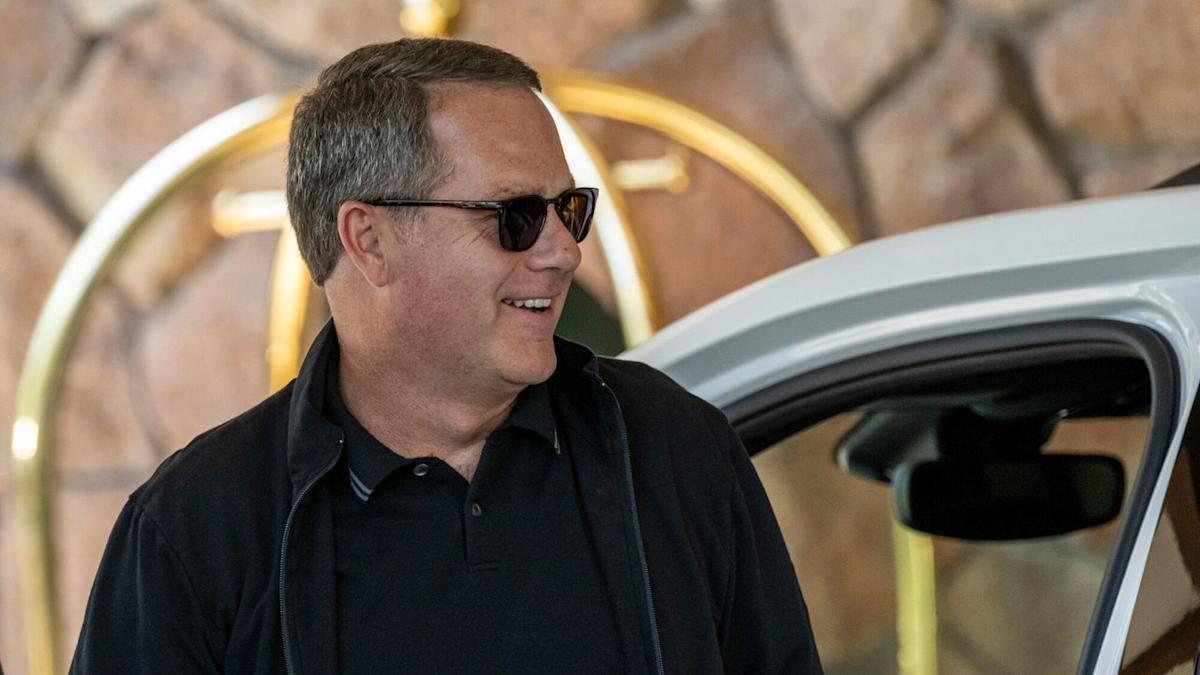With Walmart CEO Doug McMillon set to retire early next year and be replaced by company veteran John Furner, it’s worth a look at where the company stands after McMillon’s 11-year tenure at the helm.
McMillon has left a significant mark on Walmart and on the wider retail sector. David Haigh, CEO at Brand Finance, a London-based brand valuation company, provides some numbers that Walmart racked up under McMillon’s leadership:
-
When McMillon was appointed CEO in 2014, Walmart’s brand value (a different measure than its market capitalization) was $44.8 billion. “It has more than tripled during his tenure and now stands at $137.2 billion (up 42% from 2024 at $96.9 billion),” Haigh said.
-
Walmart has also become a stronger brand under McMillon’s leadership and now commands an AAA rating and a score of 84.7/100.
-
Walmart is currently the fifth most valuable brand in the world, ahead of Samsung, TikTok, Facebook, and Nvidia. Walmart is also the fastest-growing of the top five U.S. brands. “Its growth is fueled by private-label expansion, aggressive discounting, and a rebranding effort aimed at attracting younger, price-conscious consumers,” Haigh said.
Walmart’s stock price is also a big piece of McMillon’s legacy. During his tenure, Walmart’s shares rose by 310%, beating both the S&P 500 and its retail competitors.
“The retirement of Doug McMillon will send a small shock wave through Walmart, simply because he has been an excellent leader and steward of the company,” Neil Saunders, a managing director at retail analytics firm GlobalData, said in a new research note.
When McMillon early next year, it will mark the end of a transformational era under his watch.
“McMillon took over at a moment when Amazon was rising and consumer expectations were shifting, and he leaves the company significantly more digital, data-driven, and global than when he arrived,” said Kaveh Vahdat, founder and president at RiseOpp, a marketing strategies company. “For Walmart, the change in leadership brings both opportunity and risk: The business is stronger, but the playbook must now evolve under a new era of margin pressure and economic uncertainty.”
Business experts say McMillon was particularly innovative and visionary in implementing these strategic windfalls for Walmart.
McMillon’s “try often, fail fast” mindset abandoned Walmart’s historically risk-averse management posture.
“That strategy wasn’t about slogans but about creating enough internal permission to modernize at scale,” said Louisa Loran, a corporate transformational growth specialist and author of the book Leadership Anatomy in Motion. “It’s why automation could be framed as a partnership rather than a threat, and why the digital build-out didn’t fracture Walmart’s culture.”
Now Furner will inherit that environment, with an operational foundation designed for accelerated performance, not a reset. “This succession signals that Walmart has crossed an important threshold: moving from the hard lift of transformation into a phase of confident expansion, driving margin expansion,” Loran said.
During his tenure, McMillon leveraged that risk-taking management style to form key partnerships with Google’s Waymo, along with Uber and Lyft for product deliveries, among other deals.
One of McMillon’s biggest operational shifts was turning Walmart into a hybrid organization, part retailer and part technology platform.
“That change improved speed and visibility across the supply chain, but it also blurred the company’s identity and stretched its management structure,” Vahdat said. “Under his leadership, Walmart became much better at connecting digital and physical retail, yet keeping margins steady became more difficult as logistics and technology spending grew.”
Walmart is almost unrecognizable from the company McMillon inherited, and that’s a big advantage for Furner.
“A decade ago, Walmart was a legacy brick-and-mortar powerhouse with a bad reputation for underpaying workers and being the ultimate cheap discounter, struggling to define its digital strategy,” said Shawn Cole, co-founder at Cowen Partners Executive Search. “Today, it operates much more like a tech-enabled logistics company, akin to Amazon, that happens to have stores attached.”
Culturally, McMillon transformed Walmart from a defensive to an innovative company.
“The place was depressed, executives were embarrassed to say they worked there, and competitors didn’t see Walmart as a serious strategic threat,” Cole said. “McMillon brought in tech-heavy, younger leadership and made real investments in frontline employees.”
Operationally, McMillon made a significant impact across other key C-suite areas. “He built a real e-commerce business, modernized the supply chain into an advanced logistics network, and drove Walmart into higher-margin digital plays, including marketplace, advertising, and services, all wrapped in a true omnichannel model,” Cole said.
Furner, who has been the CEO of Walmart U.S., should be a big beneficiary of McMillon’s leadership and his innovative vision for the retail giant — and those advantages should kick in right away.
“Stepping aside now with a clear internal successor in John Furner and a multi-year advisory role, is succession planning done right,” Cole said. “It gives the next CEO a runway while the company is strong and locks in McMillon’s legacy as the leader who modernized Walmart instead of the one who stayed too long.”
For the retail sector, McMillon’s exit underscores that the job description for a big-box CEO has permanently shifted toward technology, data, and supply-chain sophistication.
“Going forward,” Cole said, “corporate boards will use this transition as a template.”



Leave a Comment
Your email address will not be published. Required fields are marked *